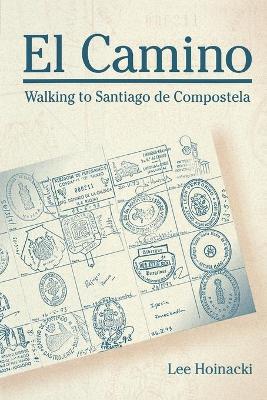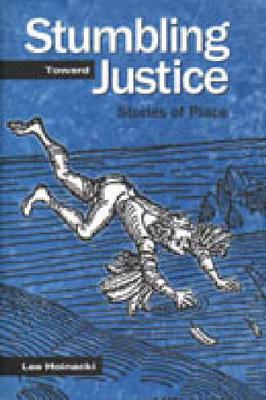Penn State Series in Lived Religious Experience
2 total works
El Camino (Spanish for "the way") is a day-by-day account of a modern American pilgrim's solitary walk from St. Jean Pied de Port in France, across the Pyrenees and northern Spain, to Santiago de Compostela, believed since medieval times to be the burial place of Saint James. During thirty-two days in 1993, Lee Hoinacki trod the 500-mile route followed by Europeans for over a thousand years, stopping each evening at pilgrim hospices, some centuries-old, to write in his diary. His reflections range from the historical examination of religious sensibility to analyses of modern developments in architecture and technology, from the theological understanding of place to the mentality of mountain bike riders. Readers share in the personal religious growth of a traditional Roman Catholic who, toward the end of his life, finds himself in the welcome company of those who walked the same camino during the past centuries. The constant interplay between pertinent anecdotes from well-chosen fellow pilgrims, both ancient and modern, and Hoinacki's experiences of contemporary Spanish customs and behavior gives the book a captivating timelessness and spiritual insight rarely found in other modern chronicles of the pilgrimage to Santiago.
"I have been privileged to live in a queer time; I have witnessed the possibilities of both transcendence and horror. Beneath the melange of comely and loathsome, I found a hope hidden in contemporary existence: one can set out on a quest, a search for the truth of the whole, the good of one's life. In spite of the stumbling, the errors, the moral lapses, indeed, because of the disarray, I came to see that only a teleological odyssey makes sense, quiets the need for meaning. The end not only illumines the journey, it also permits one to live with the shame of failure."
-from the Preface
Stumbling Toward Justice is a collection of stories of one man's odyssey through the darkness of the modern world. His journey takes him through the United States, Venezuela, Mexico, Spain, Germany, and India. In each place he stumbles for ground on which he can stand, on which he can seek an honorable life and practice.
Lee Hoinacki's goal, he tells us, is to illustrate a fundamental insight: "The promise of progress is a lie, a terrible and cruel trap. My words can have only one justification: they sow doubt." He questions contemporary belief in the goods offered by mainstream or conventional practices of child rearing, education, health care, industrial farming, and offers a critique of economic growth and technological advances. Each chapter relates a story in one of these areas from Hoinacki's experience, an experience that inspires him to critical reflection.
Hoinacki's underlying assumption is that a narrative relating one's personal experience may introduce the reader to a wider and more incisive understanding than that provided by the investigative and reporting methods of the social and natural sciences. He suggests that one comes to see the physical world, the self, and others better through the language of poetry than through that of science. Stumbling Toward Justice is a fitting sequel to his earlier book, El Camino: Walking to Santiago de Compostela. In this account, Hoinacki is writing not about a single pilgrimage but about a series of journeys over the course of his life. He speaks with the greatest possible directness and authenticity, and the truths he draws are powerful because his right to speak them has been earned along the way. "I must discover and improvise my own story as I go along," he writes.

